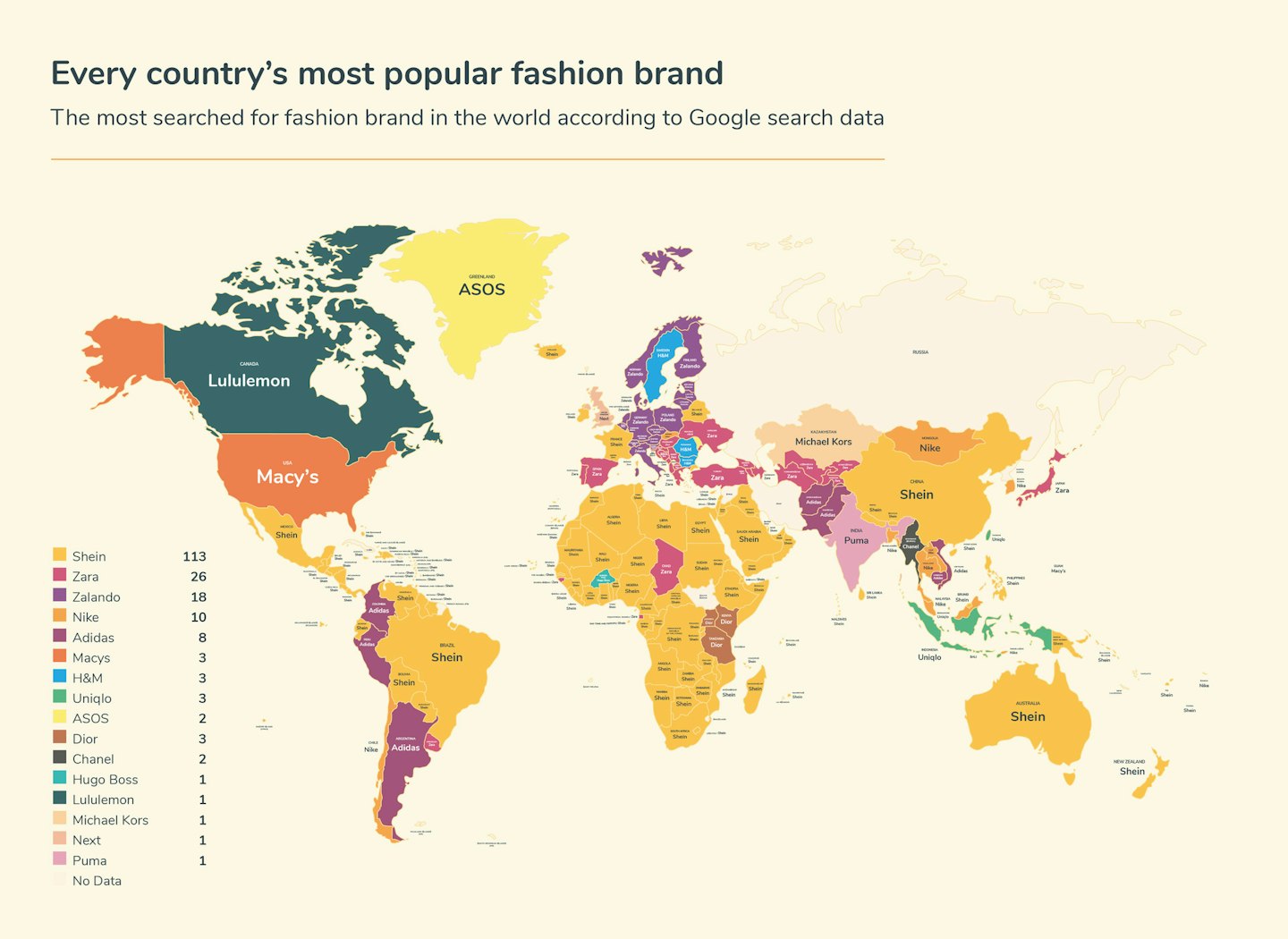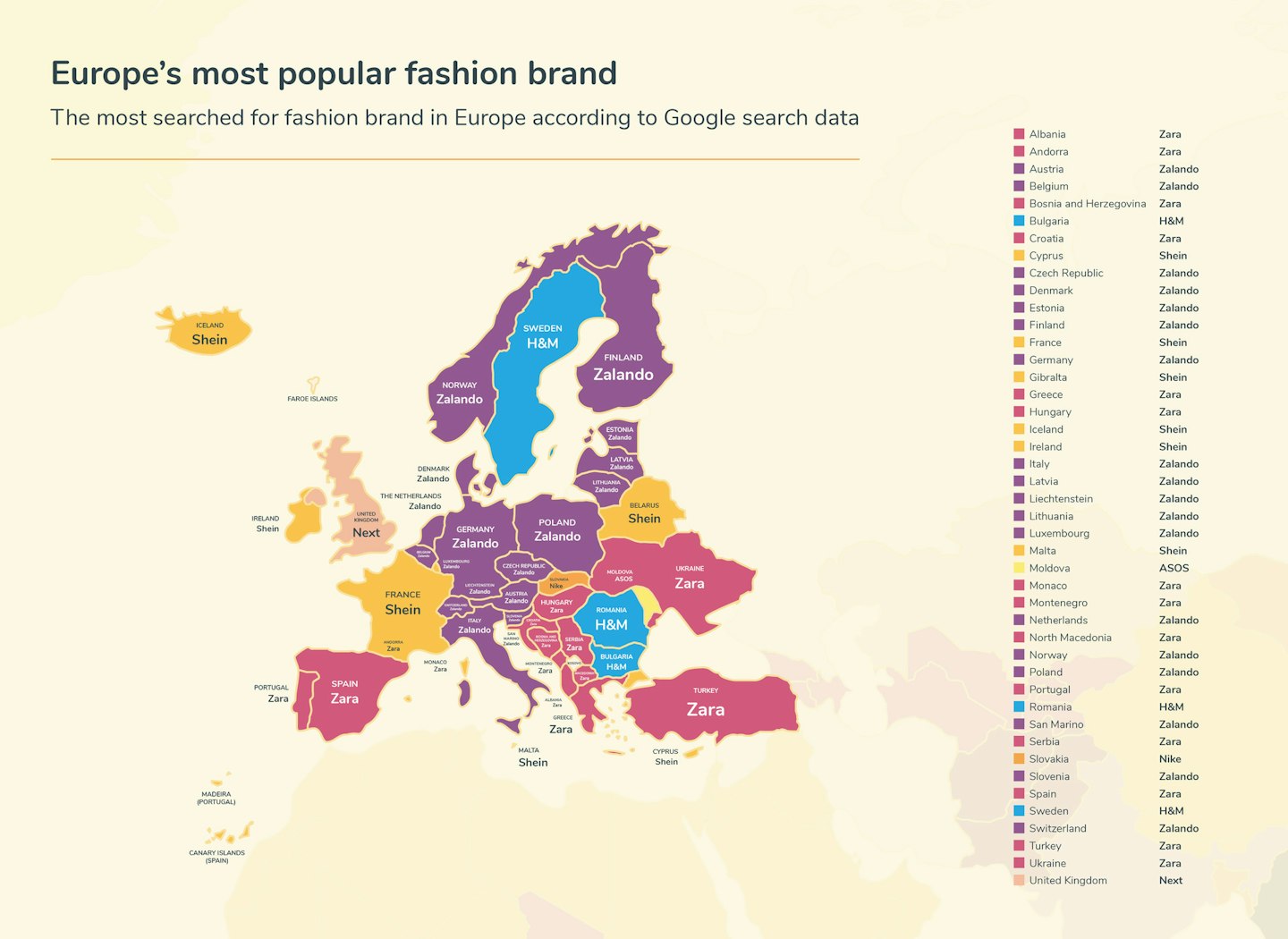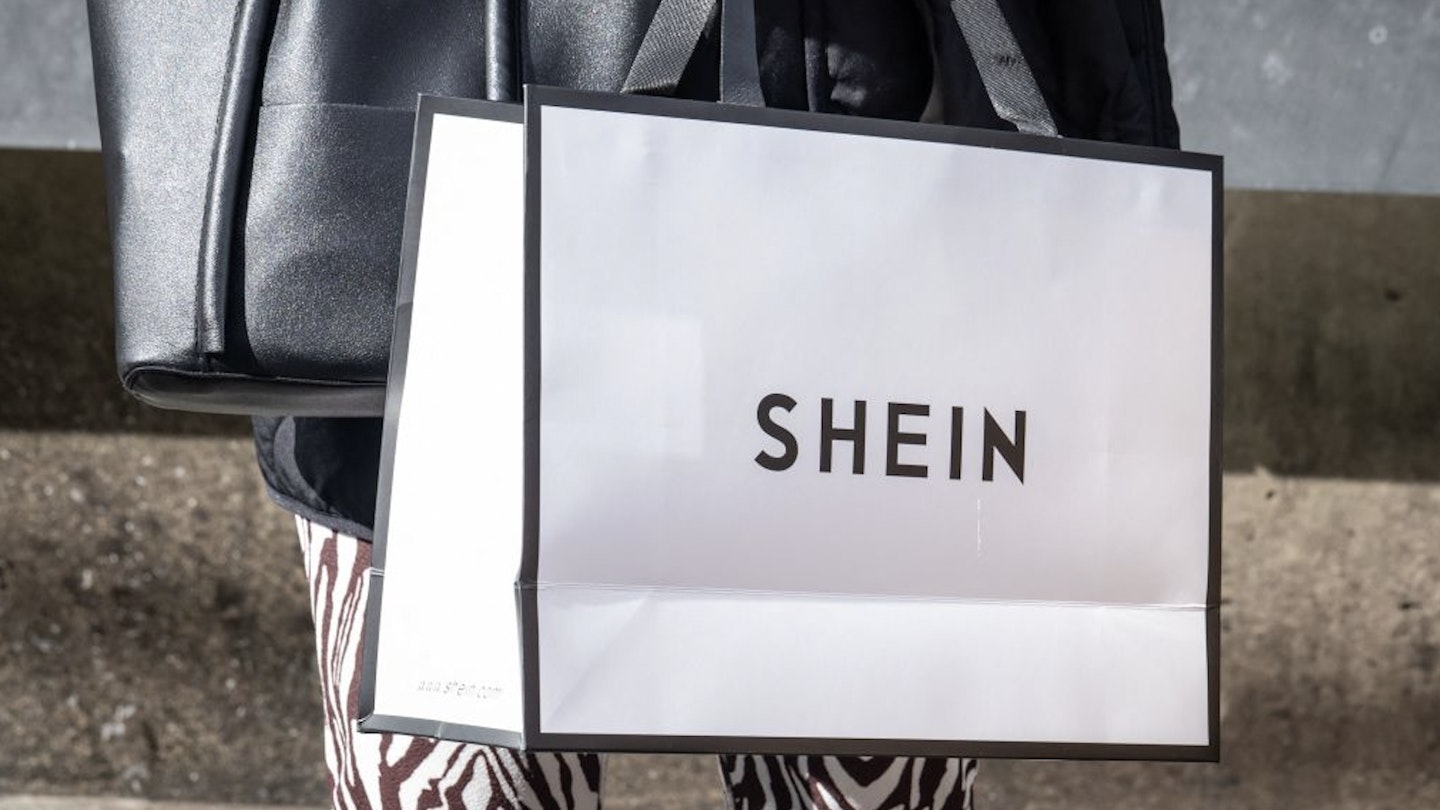A lot of people don't know how to pronounce 'Shein' (it's 'she-in'), but chances are they've probably heard about it, shopped it or perhaps even boycotted it. For those who don't know, Shein is the fast fashion behemoth founded in China - and, according to research compiled by Money.co.uk, it's the world's most popular fashion brand in 2022. After analysing a year's worth of search data on Google, Shein topped the list of most-searched-for brands in 113 countries in the world (Zara was second with 26, followed by Zalando, Nike and Adidas). It's a rather staggering statistic, particularly in light of the fact that, earlier this year, Channel 4 released a documentary about the working conditions in two factories belonging to suppliers of Shein; conditions which not only contravened the company's own code of conduct but the labour laws of China, too.
Inside The Shein Machine, which is still available to watch on All 4, paints a grim picture of factory workers being forced to pull 17-hour shifts to make hundreds of garments a day in the race to keep up with the enormous quantity of small batch orders. In one particular factory, they make 3p per piece, on top of a daily base salary of £16.50, which is docked by £12 per piece if they make a mistake. It's gruelling and relentless work. At one point, a worker who is talking to the investigative reporter who managed to infiltrate the factories, Mei, tells her that, as a poor, uneducated person, you have no choice but to accept this kind of work in exchange for your time. Imran Amrani, the journalist who made the documentary with Channel 4's Untold, was affected quite deeply by such comments. 'Little things that were said, the detail about not being able to wash your hair, it does affect you. We’re all complicit in this when we buy things from companies not thinking about where they’ve come from.' (Some workers had to wash their hair in their lunch break because it would be too late by the time they made it home from the factory in the early hours of the morning.)

At the time, Shein released the following statement: 'We know we have a responsibility to safeguard the welfare of workers in our supply chain. In light of the recent report in the news, we launched an investigation into the claim that 2 of our suppliers had unacceptable working conditions at their facilities.' But since then, the brand is still the most persistently popular in more than half the countries in the world, including France, Ireland, Iceland, Egypt, Sudan, South Africa, Saudi Arabia and China. (The UK's most-searched-for brand is Next, interestingly.) This should be a warning sign to us all.
With its prices, its algorithms, its 'dark patterns' (behaviours on a website that force you into actions that you otherwise wouldn’t take yourself) and its army of influencers-cum-ambassadors, Shein has created a perfect storm of consumption that incentivises customers to buy and buy and buy. And it's this attitude towards clothing - and the emphasis on speed and quantity over sustainability and quality - that means we're heading towards a point of no return when it comes to the climate crisis.

At Cop27, a historic agreement was made to establish a loss and damage fund, which, according to The Guardian, will 'provide financial assistance to poor nations stricken by climate disaster'. Essentially, developing countries who have made a much smaller contribution to the crisis in comparison to developed nations will finally have financial recourse as they continue to bear the brunt of increasingly erratic weather conditions that make daily life steadily more difficult to bear. So much for the positive news because according to the UN, in a report published more than a month ago before Cop27, there is 'no credible pathway to 1.5°C in place'. The report's introduction couldn't be clearer: 'Only an urgent system-wide transformation can avoid climate disaster.' And that includes changing, not just the way we shop, but the way we think about clothes. The fashion industry is the second most polluting in the world. It's time we took extreme measures to do something about the level of waste that our shopping habits produce.
'I feel like over the years things like fast fashion have fallen down people’s list of priorities,' Amrani said as we spoke on the phone a few months ago when her documentary was released. Just as politicians have been distracted by the unrelenting stream of the bad and the ridiculous - the war in Ukraine, the cost of living crisis, Liz Truss becoming prime minster, Liz Truss resigning as prime minster... - the population has been trying to survive an even more trying year than 2021. Shein being the world's most popular brand should be a wake-up call.
It's not enough to only do a haul once every other month. It's not enough to wear a dress once and ditch it at your local charity shop. It's not enough to rent your partywear wardrobe but go mad in the sales. Everything needs to slow down. Everyone needs to think about what they're letting into their wardrobes.
It's important to mention at this point that this is not an attempt to shame people who need to buy affordable clothes. With the cost of living crisis in full tilt - and parents struggling to heat their children's rooms and buy formula - it's insulting to encourage everyone to 'buy better and buy less', the mantra you so often hear when you ask a celebrity or fashion insider how they're trying to be more sustainable. We all need to do what we can. But having said that, no one needs to do a haul.
'It’s thinking about clothes in a less superficial way. If I know where my clothes have come from negatively impacts another woman, I can’t stand confidently in those clothes. That’s the truth,' says Amrani.
